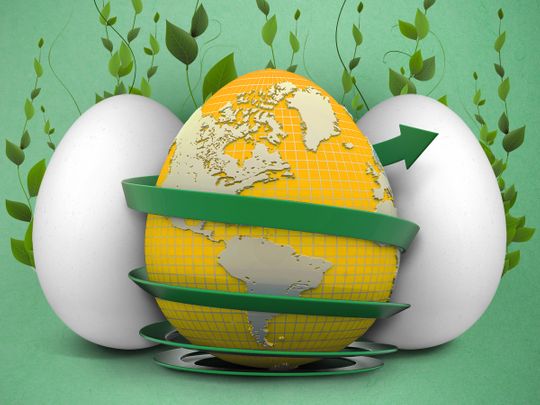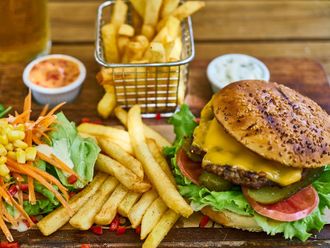
As people become more conscious about the environmental impact of their food choices, the egg industry is positioning its products as sustainable sources of animal protein. In terms of use of resources, such as land and water, egg and fish don’t leave as big a footprint as beef, lamb and goat or for that matter poultry and dairy. Nor do they produce greenhouse gases in the same scale, prompting the World Resources Institute to club eggs and fish under proteins with low environmental impact along with plant proteins such as lentils and nuts.
“Egg is the most sustainable animal protein,” declares Suresh Chitturi, Chairman of the International Egg Commission (IEC) headquartered in the UK, which organises World Egg Day on the second Friday of October every year around the globe to increase awareness of its benefits. “If you consider per gram protein, its value and digestibility, it will potentially be better than many vegetable proteins too,” adds Chitturi, who is also the Managing Director of Srinivasa Farms, a poultry and egg business based in Hyderabad in India.
Streamlining of the production process and introduction of new efficiencies over the years have resulted in significant gains for the business. There’s been a marked improvement on key sustainability indicators such as water use, chicken feed consumption and air quality in farms. “Over the past 30 years, the industry has reduced its resource consumption by about 70 per cent,” explains Chitturi. “This is through improvement in genetics, feed efficiency, and better management of the growing environment.”

Over the past 30 years, the industry has reduced its resource consumption by about 70 per cent.
But challenges remain and there’s more to be done. “Advances in genetics, feed consumption and growing environment will continue, but they cannot be at the same pace as so far,” he continues. “One major area where we can make a big impact is in how we handle litter from the farms. Today we are working on generating biogas and bio-fertilisers. Work is progressing on using litter and other agricultural waste for growing worms, which will be an excellent protein source, in a way creating a circular process.
“With these steps, potentially eggs can get to a stage where they will have a positive influence on environmental sustainability.”
Lack of awareness
However, Chitturi is not happy with the awareness levels surrounding eggs’ sustainable nature and is almost evangelical in promoting them. “People do not yet fully appreciate the real value of egg to human nutrition. Egg is said to be the best nutrition for humans after mother’s milk.”
There is no doubt that it is a goldmine of nutrients. “Eggs are one of the most nutritious foods you can find,” says Lubna Abdussalam Dhalani, Dietitian at Aster Clinic in Bur Dubai. “In addition to offering a protein of a high biological value, one that can be easily converted into body tissue, eggs are loaded with all the vitamins except C and contain important minerals such as selenium, zinc, iron and copper.”

In addition to offering a protein of a high biological value, one that can be easily converted into body tissue, eggs are loaded with all the vitamins except C and contain important minerals such as selenium, zinc, iron and copper.
Thanks to its nutritional profile and density, affordability as well as accessibility developing nations across the world turn to eggs to address malnutrition and feed a growing population.
Best practices
As the industry delivers a safe, affordable and accessible source of nutrition, the IEC is focusing on further improving its sustainability credentials. It has set up a panel called the Environmental Sustainability Expert Group. Comprising independent environmental academics and sustainability experts from the industry, the group’s aim is to position egg as the most sustainable protein of choice for consumers. “The IEC is working on bringing together the biggest players in the industry to lead the way in global protein production,” adds Chitturi.
With the expert panel expected to draw up best practices and strategies to produce eggs more efficiently and sustainably, Chitturi is optimistic about the future. “Frankly, I see only huge opportunities. For optimum health and immunity, everyone needs to eat two eggs a day. So that gives us a tremendous opportunity to grow. This will also mean creation of millions of jobs and good health for women, especially mothers, children, young adults and the aged, resulting in lower healthcare costs for individuals and governments.”
Yet, he’s realistic about the journey ahead and expects the industry to encounter speed breakers from time to time. But he’s hopeful that it will adapt and adjust to the change.







